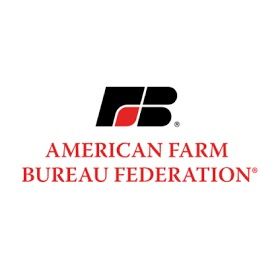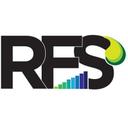Ag groups call on Treasury to include domestic feedstock requirements in 45Z guidance and unbundle climate-smart ag provisions

July 18, 2024
BY Erin Voegele
Representatives of the U.S. farming sector are urging the Biden administration to maximize the benefits of the 45Z clean fuels production tax credit by ensuring only fuels made using domestically produced feedstocks are eligible and improving climate-smart ag provisions.
The American Farm Bureau Federation, National Corn Growers Association, American Soybean Association and National Farmers Union on July 17 sent a letter to U.S. Treasury Secretary Janet Yellen and U.S. Office of Management and Budget Director Shalanda Young outlining problems with implementation on the 40B sustainable aviation fuel (SAF) tax credit and suggesting ways to avoid those problems with the 45Z credit.
“The 45Z tax credit has the potential to be a game-changer for our industry, offering a valuable incentive for the production and use of biofuels that will lower carbon emissions,” the groups wrote. “However, without clear domestic feedstock requirements, the benefits of this policy are at risk of being diverted from American farmers.”
Advertisement
Advertisement
“Currently, the guidance does not mandate the use of domestically sourced feedstocks for eligibility, opening the door for imported materials to be used in biofuel production,” they continued. “This not only undermines the economic stability of American farmers but also contradicts the broader goal of supporting U.S. agriculture and rural communities. The absence of domestic feedstock requirements can lead to increased reliance on imports, benefiting foreign countries, thereby reducing the demand for homegrown agricultural products and threatening the livelihood of American farmers.”
According to the ag groups, prioritizing biofuels produced from U.S.-grown feedstocks under the 45Z tax credit would help stimulate domestic agricultural production, creating jobs and strengthening rural economies. Domestic feedstock requirements would also enhance the environmental benefits of the 45Z tax credit, as locally sourced feedstocks typically have a low carbon footprint when compared to imported materials, they wrote. In addition, the ag groups caution that without a clear and transparent understanding of the verification of imported waste feedstocks from point of origin to point of import, there is no way to fully calculate their true carbon footprint.
Advertisement
Advertisement
The letter also describes concerns about the bundling of climate-smart agriculture (CSA) practices within the SAF guidance and the cumbersome reporting requirements. “While the intention behind promoting these practices is commendable, the current requirements are onerous and unworkable for many farmers,” the ag groups wrote. “According to available Natural Resources Conservation Service data, the guidelines for climate-smart practices are complex and only feasible in select geographies, excluding a large portion of farmers from participating. This geographical limitation not only creates an uneven playing field but also fails to recognize the diverse agricultural conditions across our nation.
“The bundling of these climate-smart practices adds layers of complexity and costs that many farmers simply cannot bear and will not pursue if not paid a premium,” they continued. “The implementation of no-till farming, cover cropping and enhanced efficiency fertilizers requires significant upfront investments in both time and resources. Without a greater incentive, many farmers may simply be unable to implement these bundled practices based on economic limitations alone. Moreover, even if geography allows farmers to comply with the CSA requirements, the cumbersome reporting requirements will dissuade even the most sophisticated farming businesses from participating. Additional options for compliance must be considered that would give farmers the ability to comply with CSA requirements without running afoul of the Internal Revenue Service. If this flexibility is not granted, the CSA requirements will become barriers rather than enablers of sustainable farming.”
Rather than the bundled CSA requirements included in the SAF tax credit guidance, the ag groups are urging the administration to provide more tailored and accessible guidelines that account for varying capabilities and conditions of farmers across the country. "The U.S. Department of Agriculture has identified a myriad of CSA practices that farmers are already employing, based on need, soil type, farm size and more,” the groups wrote. “Simplifying these requirements and offering greater support for farmers to adopt climate-smart practices will be crucial to ensuring broader participation by producers.”
A full copy of the letter is available on the American Farm Bureau Federation website.
Related Stories
More than 1.76 billion renewable identification numbers (RINs) were generated under the Renewable Fuel Standard in January, down from 1.91 billion generated during the same period of 2024, according to data released by the U.S. EPA on Feb. 20.
The U.S. EPA on Feb. 20 released updated small refinery exemption (SRE) data showing that 13 previously denied SRE petitions for Renewable Fuel Standard compliance years 2021 and 2022 are being reconsidered. No new SRE petitions were filed.
A coalition of biofuel, agriculture, fuel retailer and petroleum trade groups on Feb. 19 sent a letter to U.S. EPA Administrator Lee Zeldin urging the agency to set robust, timely, multiyear RFS RVOs for 2026 and beyond.
CVR pauses development of potential SAF projects pending regulatory, tax credit clarity
CVR Energy Inc. released fourth quarter financial results on Feb. 18, reporting reduced renewable diesel production. The company also said it is pausing development of SAF capacity pending clarity on government subsidies.
CARB on Feb. 18 announced that amendments to its LCFS program that were approved in November 2024 have been put on hold following the California Office of Administrative Law’s decision to disapprove the amendments due to clarity issues.
Upcoming Events










